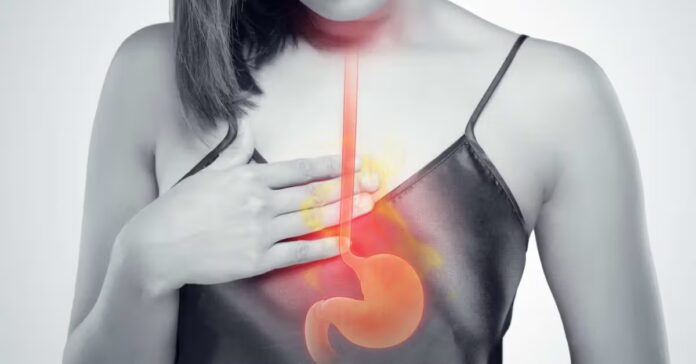Chest pain and acid reflux are some common conditions that people occasionally experience. However, when symptoms are recurrent, it indicates a serious underlying condition. In India, where lifestyle and eating habits contribute to such health problems, it is important to create awareness and understanding of the implications of untreated chest pain and acid reflux.
- Chest Pain: The term ‘chest pain’ refers to pain or discomfort in the chest area. Minor problems like indigestion or muscular pull can lead to chest pain, but it can also be caused by serious health conditions like heart disease.
- Acidic Reflux: When stomach acid flows back to the oesophagus, it is known as acidic reflux or gastroesophageal reflux disease (GERD). If not treated in time, it leads to discomfort and complications in the lining of the oesophagus.
Chest pain and acid reflux are often confused because of similar symptoms. Chest pain is associated with heart-based conditions like crushing pain in the chest. While acid reflux shows symptoms like a burning sensation in the chest and a sour taste in the mouth, But both conditions ask for a medical evaluation to rule out serious issues.
Potential Risks of Untreated Chest Pain
- Heart Attack: Chest pain is one of the first symptoms of a heart attack. Delayed treatment leads to severe damage to heart muscles, which over time leads to health complications.
- Angina: It is a condition in which the heart doesn’t get enough oxygen due to narrowed coronary arteries. Untreated angina increases the risk of a heart attack.
- Other Cardiovascular Conditions: Constant chest pain is a symptom of various cardiovascular conditions, like aortic dissection or pulmonary embolism.
Potential Risks of Untreated Acidic Reflux
- Esophagitis: Prolonged acid reflux leads to inflammation of the esophagus. This condition causes pain, bleeding, and difficulty swallowing.
- Barrett’s Oesophagus: Under this condition, there are changes among cells in the lining of the oesophagus due to continuous exposure to acid, leading to an increase in the risk of esophageal cancer.
- Respiratory Problems: Acid reflux also leads to respiratory-related issues like constant coughing, asthma, and aspiration pneumonia.
Diagnostic Procedures
Procedures for the diagnosis of chest pain include electrocardiograms (ECG), stress tests, and angiography for assessing the function of the heart and identifying blockages. For GERD, endoscopy, pH monitoring, and esophageal manometry are done to check the severity of acid reflux.
Treatment
- Medications: Proton pump inhibitors (PPIs) are drugs used to decrease the production of stomach acid in patients with GERD.
- Lifestyle Changes: To effectively manage GERD and heart disease, it is crucial to make changes in nutrition, manage weight, and quit smoking.
- Surgical Interventions: In severe conditions, surgeries like fundoplication for GERD or angioplasty and bypass surgery for heart disease are done.It is advised to not ignore symptoms like chest pain and reflux, as they can indicate a serious underlying health condition. The burden of GERD and cardiovascular disease is decreased by raising public awareness. Living a healthy life means putting heart health first and taking care of acid reflux issues.


